The Incredible Honeymoon Read online
Produced by Suzanne Shell, Emmy and the Online DistributedProofreading Team at https://www.pgdp.net (This file wasproduced from images generously made available by TheInternet Archive/American Libraries.)
[See page 118
They sat among the twisted tree roots, and ate and drank and were merrylike children on a holiday.]
THE INCREDIBLE HONEYMOON
BY E. NESBIT
AUTHOR OF "THE RED HOUSE" ETC.
HARPER & BROTHERS PUBLISHERS NEW YORK AND LONDON
BOOKS BY E. NESBIT
THE INCREDIBLE HONEYMOON Frontispiece. Post 8vo THE BOOK OF DRAGONS. Illustrated. 8vo THE RED HOUSE. Illustrated. Post 8vo THE ENCHANTED CASTLE Illustrated. Post 8vo THE WOULDBEGOODS. Illustrated. Post 8vo
HARPER & BROTHERS, NEW YORK ESTABLISHED 1817
THE INCREDIBLE HONEYMOON
Copyright, 1916, by Harper & Brothers Printed in the United States of America Published October, 1916
THE INCREDIBLE HONEYMOON
I
THE BEGINNING
TO understand this story you will have to believe in the GreaterGods--Love and Youth, for example, and Adventure and Coincidence; alsoin the trusting heart of woman and the deceitful spirit of man. You willhave to reconcile yourself to the fact that though daily you go toLondon by the nine-seven, returning by the five-fifteen, and have youraccustomed meals at eight, one, and half-past six, there are those whotake neither trains nor meals regularly. That, while nothing on earthever happens to you, there really are on earth people to whom things dohappen. Nor is the possibility of such happenings wholly a matter of theindependent income--the income for which you do not work. It is a matterof the individual soul. I knew a man whose parents had placed him inthat paralyzing sort of situation which is symbolized by the regulartrains and the regular meals. It was quite a nice situation for somepeople, a situation, too, in which one was certain to "get on." But theman I knew had other dreams. He chucked his job, one fine Saturdaymorning in May, went for a long walk, met a tinker and bought hisoutfit--a wheel on wheels, a sort of barrow with a grindstone on it, anda pot for putting fire in dangling underneath. This he wheeledprofitably through rural districts--so profitably that he was presentlyable to buy a donkey and a cart, and to sell kettles as well as mendthem. He has since bought a gipsy tent; with these impediments--orhelps--he travels through the pleasant country. Things are alwayshappening to him. He has found a buried treasure; frustrated a burglary;once he rescued a lady in distress; and another time he killed a man.The background to these dramatic incidents is always the pleasantbackground of quiet road, blossoming hedgerows and orchards, corn-fieldsand meadows and lanes. He says this is the way to live. I will writedown his story some day, but this is not it. I only bring him in toillustrate my point, which is that adventures do happen--to theadventurous.
My friend the tinker has had, perhaps, more than his share ofadventures, but then his is the temperament that shoots, like a willingneedle, to the great magnet of melodrama. The temperamental needle ofEdward Basingstoke followed the magnet of romance. In a gayer, if lesscomfortable, age he might have been a knight-errant, or, at least, thesympathetic squire of a knight-errant. Had he been born in the days whenmost people stayed at home and minded their own business he would haveinsisted on going out and minding other people's. Living in the days ofaeroplanes, motors, telegraphy, and cinematographs, in a world noisywith the nonsense of politics and the press, he told himself that theideal life was the life of the farmer who plowed and sowed and reaped,tended his beasts and filled his barns, and went home from his clean,quiet work to the open hearth whence the wood smoke curled up to heavenlike the smoke of an altar.
Destiny, in deep perversity, was making an engineer of him. He dreamedhis pastoral dreams in the deafening clangor of the shops at Crewe, butnot ten thousand hammers could beat out of his brain the faith that lifewas really--little as one might suppose it, just looking at it fromCrewe--full of the most beautiful and delicate possibilities, and that,somehow or other, people got from life what they chose to take. While hewas making up his mind what he should take, he went on learning histrade. And Destiny seemed determined that he should learn nothing else.What we call Destiny is really Chance--and so far from being immutable,she is the veriest flirt and weathercock. She changed her mind aboutEdward--or perhaps Death, who is stronger than she, insisted andprevailed.
Just at the time when a faint dust was beginning to settle on hisdreams--the sort of dust that thickens and hardens into clay and yougrow cabbages in it--Death intervened to save him. It was his uncle whodied, and he left a will, and by that will certain property came toEdward. When the news came he took a day to think of it, and he went tothe works as usual that afternoon and the next morning. But next day atnoon he laid down his tools and never took them up again. Instead hetook a ticket to Oxford, appeared at the rooms of his friend, whom hesurprised in slumber, and told his tale.
"And you're going to chuck the shop," said the friend, whose name wasVernon Martingale, and his father a baronet.
"I have chucked the shop," said Edward. "I chucked it at Fate as youmight throw a stone at a dog. And that reminds me--I want a dog. Do youknow of a nice dog--intelligent, good manners, self-respecting, andworthy?"
"Any particular breed?"
"Certainly not. These researches into family history are in the worstpossible taste. You don't love me for my pedigree. Why should I love mydog for his?"
"I suppose you want some tea, anyhow," said Martingale.
So they had tea, and talked cricket.
"Any idea what you mean to do?" Martingale asked several times, and atlast Edward answered him.
"What I mean to do," he said, "is what I always meant to do. I mean tobe a farmer, and hunt, and shoot, and grow flowers. I think I shallspecialize on sunflowers. They're so satisfying."
"More than you are," said Vernon. "Mean to say you're going to buy afarm and ruin yourself the moment you've got a few half-crowns to ruinyourself with?"
"I am going to be a farmer," said Basingstoke, "but first I am going tosee life."
"Life? But you were always so. . . ."
"I mean _that_"--Edward indicated the sunshine outside--"not gettingdrunk and being disreputable. I can't think why the deuce-dickens thatsort of beastliness is always called seeing life. As if life were allgas, and wining, and electric light, and the things you don't talk aboutbefore ladies. No, my boy, I'm going out into the unknown--not into thenight, because it happens to be afternoon--and I thought I'd just comeand clasp that hand and gaze once into those eyes before I set my footon the untrodden path of adventure. Farewell, Vernon of Martingale, goodknight and true! Who knows when we shall meet again?"
"_I_ don't, anyhow," said Vernon, "and that's why you're not going tillthe day after to-morrow, and why I insist on knowing what you mean byseeing life--and why you're going to stay till to-morrow, anyhow."
"Heaven forbid that I should criticize another man's tastes," Edwardsighed, "or deprive him of any innocent enjoyment. If you want me tostay--well, I'll stay--till to-morrow. And as for what I mean by seeinglife--well, I should have thought even you would have understood that.I'm going to get a stick, and a knapsack, and a dog, and a differentkind of hat, and some very large boots with nails, and a new suit, onlyI shall wear it all night before I wear it all day. Oh, Vernon, can'tyou guess my simple secret?"
"He calls a walking-tour seeing life!" Vernon pointed out. "And who'sgoing with you and where are you going? The Hartz Mountains?--theCarpathians?--Margate?--Trouville? What?"
"The person who is going with me," said Edward, "is the dog whom wehaven't yet bought. Come along out and buy him. As to where I'm going, Ishall follow the mo
st ancient of sign-posts--and I know that I can't gowrong."
"You will follow--"
"My nose," Edward explained, kindly--
"That indicator of the place to be, The Heaven-sent guide to beauty and to thee.
"Do you know, if you talk rot to the chaps at the works they try tounderstand what you mean. Like Scotchmen, you know. They think they canunderstand anything, no matter how shallow. Now I will say for you thatyou know your limitations. Let's buy the dog, my son, and get a canoe."
They did. And the dog upset the canoe.

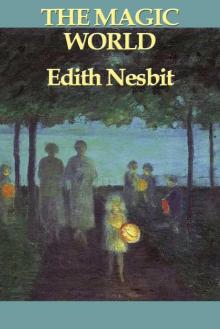 The Magic World
The Magic World In the Dark
In the Dark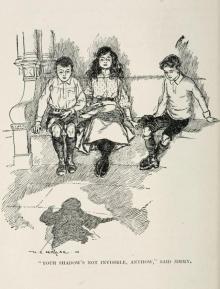 The Enchanted Castle
The Enchanted Castle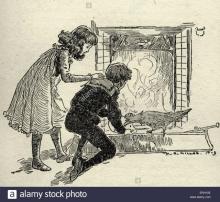 The Phoenix and the Carpet
The Phoenix and the Carpet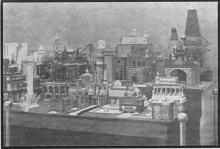 The Magic City
The Magic City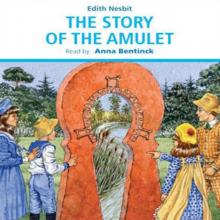 The Story of the Amulet
The Story of the Amulet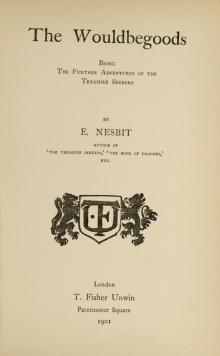 The Wouldbegoods: Being the Further Adventures of the Treasure Seekers
The Wouldbegoods: Being the Further Adventures of the Treasure Seekers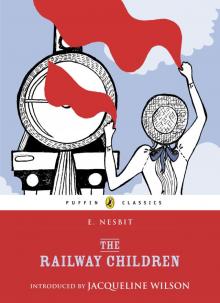 The Railway Children
The Railway Children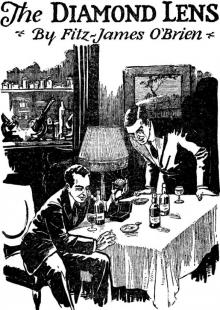 The Diamond Lens
The Diamond Lens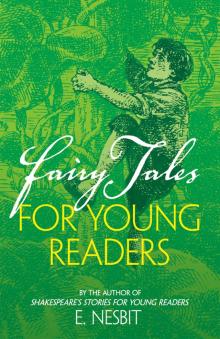 Fairy Tales for Young Readers
Fairy Tales for Young Readers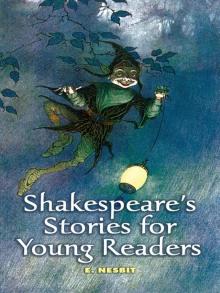 Shakespeare's Stories for Young Readers (Dover Children's Classics)
Shakespeare's Stories for Young Readers (Dover Children's Classics)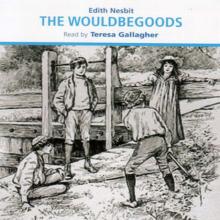 The Wouldbegoods
The Wouldbegoods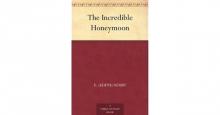 The Incredible Honeymoon
The Incredible Honeymoon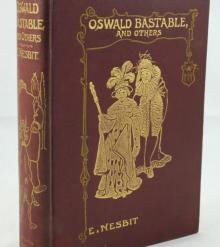 Oswald Bastable and Others
Oswald Bastable and Others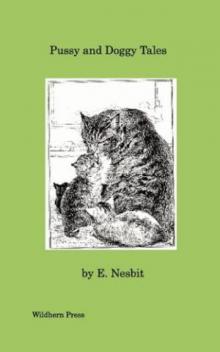 Pussy and Doggy Tales
Pussy and Doggy Tales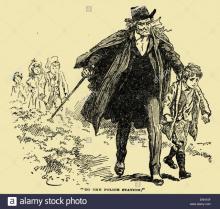 New Treasure Seekers; Or, The Bastable Children in Search of a Fortune
New Treasure Seekers; Or, The Bastable Children in Search of a Fortune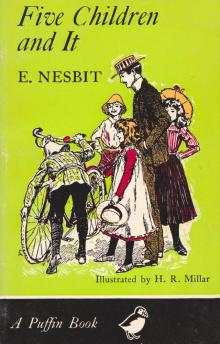 Five Children and It
Five Children and It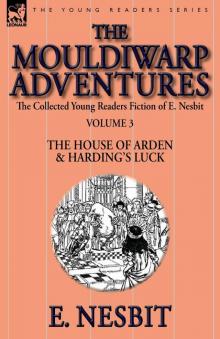 Harding's luck
Harding's luck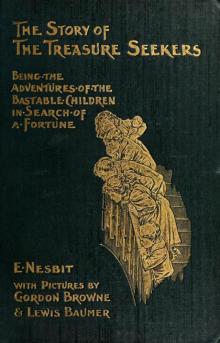 The Story of the Treasure Seekers
The Story of the Treasure Seekers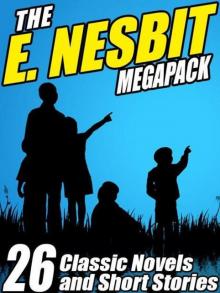 The E. Nesbit Megapack: 26 Classic Novels and Stories
The E. Nesbit Megapack: 26 Classic Novels and Stories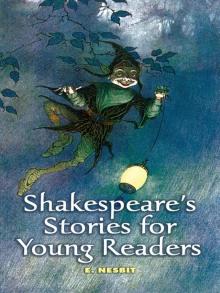 Shakespeare's Stories for Young Readers
Shakespeare's Stories for Young Readers